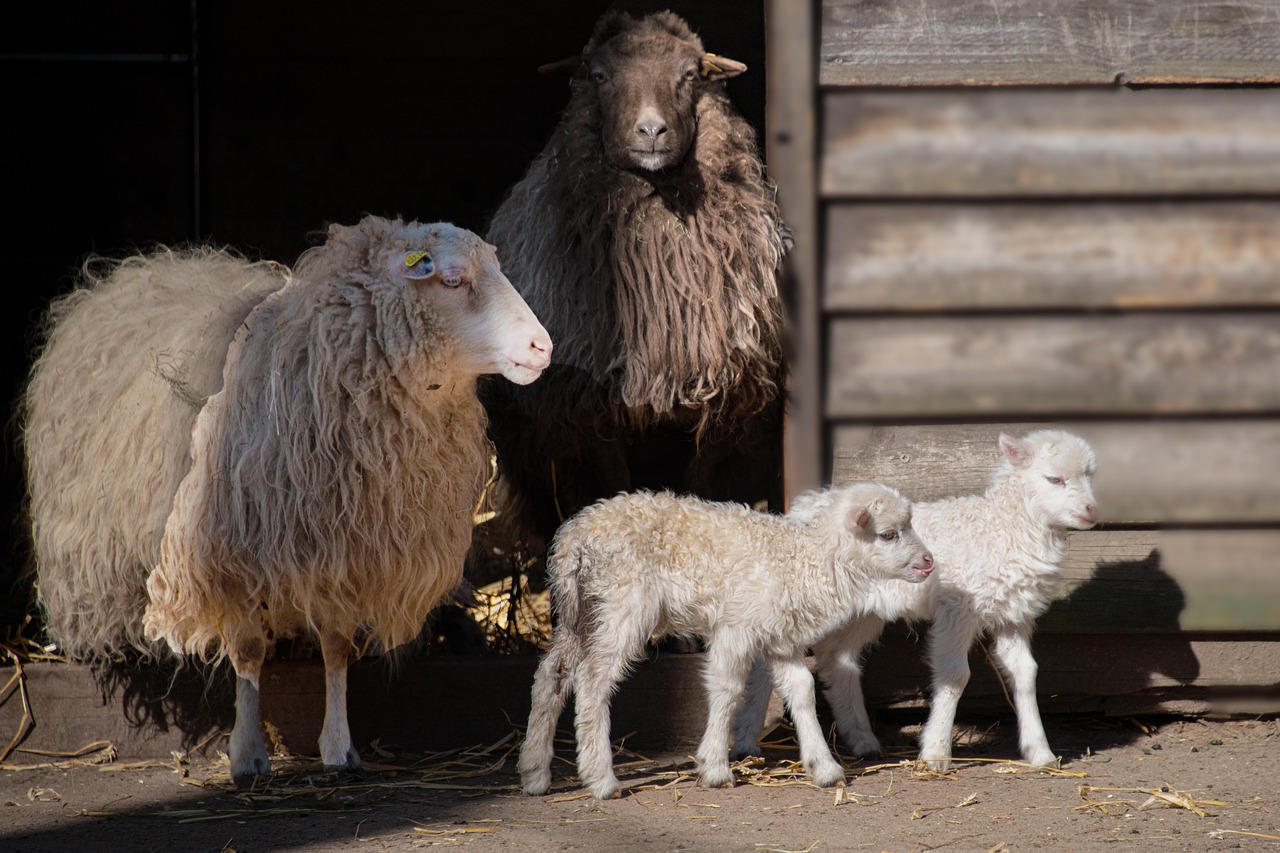Beyond the familiar purrs and barks, a world of unique companionship awaits. While cats and dogs remain beloved mainstays in the pet world, adventurous animal lovers are increasingly seeking out unusual pets. From the scaled elegance of a leopard gecko to the intelligent charm of a sugar glider, these unconventional creatures offer enriching experiences and a chance to connect with nature in a deeply personal way. But before you jump into the fascinating realm of exotic animal ownership, careful research and consideration are paramount. This guide will explore some intriguing options, providing essential insights into their care, legal considerations, and the commitment required to provide a happy and healthy life for your potential new friend.
Understanding the Appeal of Unusual Pets
Why Choose Something Different?
The allure of unusual pets stems from several factors. Some individuals seek a unique connection with an animal unlike any other, while others are drawn to the challenge and intellectual stimulation of learning about a species’ specific needs. More practically, some unusual pets may be a better fit for smaller living spaces or individuals with allergies.
- Unique Companionship: Offers a distinct and rewarding pet-owner bond.
- Educational Experience: Provides opportunities to learn about diverse species and ecosystems.
- Suitability for Specific Lifestyles: Can be a good fit for those with limited space or allergies to traditional pets.
- Conversation Starters: Let’s be honest, a well-cared for exotic pet is quite the talking point!
Responsible Exotic Pet Ownership
Owning an unusual pet comes with significant responsibilities. It’s crucial to research the animal’s specific needs, including diet, habitat, temperature, and social interaction. Neglecting these needs can lead to health problems, behavioral issues, and even premature death. Always prioritize the animal’s well-being.
- Thorough Research: Understand the animal’s specific requirements.
- Legal Considerations: Ensure ownership is legal in your area and obtain any necessary permits.
- Veterinary Care: Find a veterinarian experienced in treating exotic animals.
- Ethical Sourcing: Acquire your pet from a reputable breeder or rescue organization.
Popular (and Not-So-Popular) Unusual Pet Choices
Reptiles and Amphibians
Reptiles and amphibians offer a wide variety of choices, each with distinct personalities and care requirements.
- Leopard Geckos: Docile, easy to handle, and relatively low-maintenance, making them a great beginner reptile. They require a heated enclosure, proper substrate, and a diet of insects.
Example: A healthy leopard gecko should have a rounded belly and bright eyes.
- Bearded Dragons: Social and interactive, bearded dragons enjoy basking under heat lamps and eating a varied diet of insects and vegetables. They need a larger enclosure than leopard geckos.
Example: Ensure your bearded dragon gets enough UVB light to prevent metabolic bone disease.
- Ball Pythons: Known for their docile nature and beautiful patterns, ball pythons are a popular choice for snake enthusiasts. They require a secure enclosure, proper humidity, and a diet of frozen rodents.
Important Note: Handling frequency and feeding schedules require meticulous planning to maintain a healthy snake.
- Axolotls: These aquatic salamanders are fascinating creatures with unique regenerative abilities. They require cool, clean water and a diet of live or frozen invertebrates. Axolotls are sensitive to water quality and should be kept in a filtered aquarium.
Example: Regularly test your axolotl’s water to ensure it is free of ammonia and nitrites.
Small Mammals
Small mammals, while often more demanding than reptiles, offer a level of interaction that many pet owners desire.
- Sugar Gliders: These nocturnal marsupials are known for their playful personalities and ability to glide between objects. They require a large cage, a varied diet of fruits, vegetables, and insects, and plenty of social interaction.
Important Note: Sugar gliders are highly social and should be kept in pairs or small groups.
- Hedgehogs: These spiny mammals are relatively low-maintenance, but they require a quiet environment and a diet of insect-based food. They are nocturnal and may not be suitable for those seeking a daytime companion.
Example: Provide your hedgehog with a running wheel for exercise.
- Rats: Often misunderstood, rats are intelligent, social, and affectionate pets. They can be trained to perform tricks and enjoy interacting with their owners. They require a spacious cage, a varied diet, and plenty of attention.
Benefit: Rats form strong bonds with their owners and are surprisingly clean animals.
Birds
Birds can be captivating companions, but they demand significant commitment in terms of time, space, and social interaction.
- Parakeets (Budgies): Small, colorful, and relatively easy to care for, parakeets are a popular choice for first-time bird owners. They require a spacious cage, a diet of seeds and pellets, and plenty of toys.
Example: Provide your parakeet with a cuttlebone for calcium.
- Cockatiels: Intelligent and affectionate, cockatiels enjoy interacting with their owners and can be trained to talk and perform tricks. They require a larger cage than parakeets and more attention.
Important Note: Cockatiels are prone to plucking their feathers if they are bored or stressed.
- Pigeons: Yes, pigeons! While often overlooked, pigeons can be wonderful pets. Bred for centuries, there are many domestic breeds that are far removed from their urban counterparts. They’re intelligent, relatively easy to care for, and can be trained. They require a secure loft and a balanced diet.
Benefit: Pigeons are highly intelligent and can be trained to perform impressive feats.
Legal and Ethical Considerations
Permits and Regulations
Before acquiring any unusual pet, it’s essential to research local, state, and federal laws regarding ownership. Some species are prohibited or require permits. Ignoring these regulations can result in fines, confiscation of the animal, and even legal prosecution.
- Check Local Ordinances: Contact your local animal control or government agency.
- State Regulations: Research state-specific laws regarding exotic animal ownership.
- Federal Laws: Be aware of federal regulations, such as those related to endangered species.
Ethical Sourcing
Support responsible breeders and rescue organizations that prioritize the animal’s welfare. Avoid purchasing animals from sources that contribute to illegal wildlife trade or keep animals in inhumane conditions.
- Reputable Breeders: Look for breeders who are knowledgeable about the species and prioritize its health and well-being.
- Rescue Organizations: Consider adopting a rescued animal in need of a loving home.
- Avoid Wild-Caught Animals: Wild-caught animals are often stressed, unhealthy, and may carry diseases.
Creating the Right Habitat
Enclosure Design and Enrichment
Providing a stimulating and enriching habitat is crucial for the well-being of unusual pets. The enclosure should mimic the animal’s natural environment as closely as possible, providing opportunities for exercise, exploration, and mental stimulation.
- Appropriate Size: Ensure the enclosure is large enough for the animal to move around comfortably.
- Temperature and Humidity Control: Maintain the proper temperature and humidity levels for the species.
- Enrichment Items: Provide toys, climbing structures, and hiding places to keep the animal entertained.
Diet and Nutrition
A proper diet is essential for the health and longevity of unusual pets. Research the animal’s specific dietary needs and provide a balanced and varied diet.
- Species-Specific Diet: Feed the animal a diet that is appropriate for its species and life stage.
- Fresh Water: Always provide access to fresh, clean water.
- Supplementation: Consider supplementing the diet with vitamins and minerals as needed.
Conclusion
Exploring the world of unusual pets can be a rewarding experience, but it requires careful consideration and a commitment to responsible ownership. By understanding the specific needs of these fascinating creatures, researching legal requirements, and providing a stimulating and enriching environment, you can create a fulfilling and mutually beneficial relationship with your unique companion. Remember to prioritize the animal’s welfare above all else and seek guidance from experienced veterinarians and breeders. With dedication and knowledge, you can provide a happy and healthy life for your unusual pet and enjoy the extraordinary bond that comes with it.



